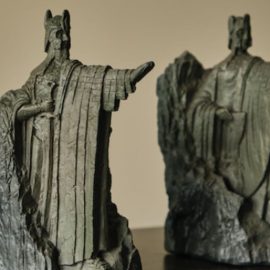

This article is an excerpt from the Shortform book guide to "The White Man's Burden" by William Easterly. Shortform has the world's best summaries and analyses of books you should be reading.
Like this article? Sign up for a free trial here .
What is William Easterly’s The White Man’s Burden about? How was the book received by the public?
Easterly’s book is controversial because he actually makes the case against providing certain types of aid to countries that are struggling. Some saw his book as revolutionary while some thought it was blasphemous.
Here is a brief overview of The White Man’s Burden with a look at some of the critiques.
The White Man’s Burden
In The White Man’s Burden, economist, New York University professor, and Brookings Institution senior fellow William Easterly argues that the global humanitarian aid system is fundamentally flawed. His main critique is that the international aid system prioritizes top-down, centralized, and tightly directed aid distribution—all controlled by rich countries far from the developing world they mean to serve. Because the aid community is so disconnected, it creates big plans and sweeping missions completely unsuited for the reality on the ground, overlooks local concerns, and rarely holds itself accountable.
Specifically, Easterly argues that:
- The Western-dominated, top-down approach to global aid and economic development does little to serve the needs of people living in poverty in the developing world—and that these efforts reflect a neocolonial mindset on the part of the West.
- Attempts by Western-dominated institutions like the International Monetary Fund and World Bank to impose free-market reforms in countries from Russia to Afghanistan through “shock therapy” have resulted in crony capitalism, the subsidization of bad government, and chronic poverty and indebtedness.
- Most of the social, economic, and political problems in the developing world stem from bad governments—and the West and the aid community lack the power to simply impose better governments upon these countries.
- The major aid organizations are saddled by inefficient and unaccountable bureaucracies that lack accountability, overlap or compete with one another, and don’t have clearly defined goals.
- The aid community botched the initial response to the AIDS crisis in Africa during the 1980s and, since then, has misspent resources by focusing on expensive and ineffective treatments rather than prevention.
In this guide, we don’t cover some of the more discursive and tangential sections of The White Man’s Burden—including some of Easterly’s long historical recaps of various Western colonial enterprises in Africa and the Middle East in the 19th and 20th centuries, lengthy descriptions of statistical methodology, and outdated case studies. In addition, we have incorporated commentary from outside sources to update some of Easterly’s statistics (since the book was published in 2006), supplement his ideas with more recent examples, and incorporate alternative or opposing viewpoints.
Criticism and Praise for The White Man’s Burden
William Easterly’s The White Man’s Burden builds upon themes and topics that Easterly explored in his 2001 book, The Elusive Quest for Growth, in which he criticized the global economic development community for its failure to understand the importance of economic incentives in its policy and program design. That pointed critique, incidentally, helped get him fired from his position as a senior adviser in the development group at the World Bank.
Contemporary reviews of The White Man’s Burden celebrated the book for its boldness in questioning the conventional wisdom on foreign aid and international economic development and praised Easterly for bringing attention to the inadequacies of the prevailing foreign aid model. In particular, contemporaries found merit in Easterly’s argument that even the most well-intentioned philanthropy seldom achieves its desired goals—and often ends up diverting resources to nefarious actors. They also praised Easterly’s somewhat counterintuitive argument that capitalism, entrepreneurship, and the profit motive are often better engines of social progress in developing countries than direct aid—a view at odds with those of many in the global development community, including Jeffrey Sachs, Easterly’s longtime ideological rival.
Some reviewers did criticize the book for what they saw as its muddled and lengthy detours into political science, as well as Easterly’s shaky analysis of the legacy of British and French colonialism in Asia, Africa, and the Middle East. Other critics noted that Easterly’s approach is more effective at pointing out problems than it is at identifying solutions—in particular, noting his failure to discuss what, precisely, enabled countries like Poland, the Czech Republic, and Estonia to successfully transition to free-market liberal democracy, while efforts to bring this about in other countries (most notably Russia) failed.

———End of Preview———
Like what you just read? Read the rest of the world's best book summary and analysis of William Easterly's "The White Man's Burden" at Shortform .
Here's what you'll find in our full The White Man's Burden summary :
- How the global humanitarian aid system is fundamentally flawed
- Why bottom-up aid models work much better than top-down models
- Why the West can't change bad governments






